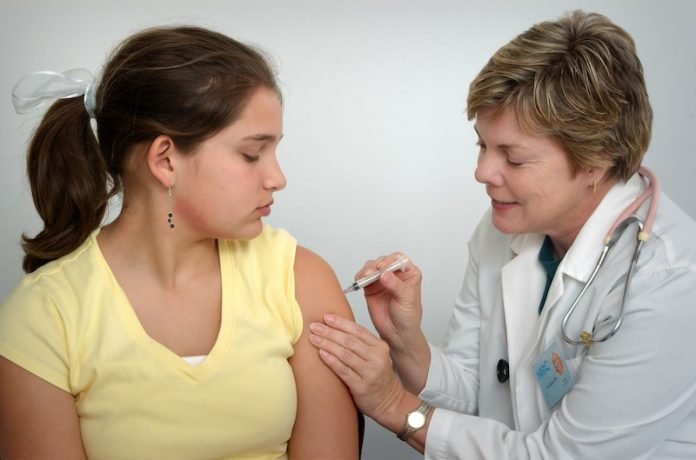
In a new study, researchers found that almost seven in 10 Americans would be interested in receiving a COVID-19 vaccine when one becomes available.
They suspected there would be higher-than-normal interest in this vaccine, considering the nature of the pandemic and the severity of illness many people have experienced.
The study is one of the first estimates of COVID-19 vaccine acceptance in the U.S.
The research was conducted by a team from Ohio State University.
The team surveyed more than 2,000 Americans in May, asking them about their willingness to be vaccinated and 11 factors that could influence that decision.
They found that 1,374 out of 2006 people in the survey, 69%, said they would “definitely” or “probably” get a vaccine. The survey found that 17% were “not sure” and 14% were “probably or “definitely” not willing.
The strongest predictors of whether someone said they’d accept a vaccine were how well the vaccine works and whether their health care provider would recommend it.
Individuals’ perceived personal health threat from COVID-19 also played strongly into their willingness to be vaccinated, the researchers found.
One of the more unexpected findings in this study is the link between political affiliation and the willingness to adopt a public health intervention.
Respondents who identified as liberal or moderate were significantly more likely to accept a vaccine.
As of the first week of September, 10 states had indicated plans to offer free vaccines when they become available, according to KFF (formerly known as the Kaiser Family Foundation.)
The team says public health leaders and policymakers can look to this study as they shape efforts to communicate the benefits (and any risks) of a COVID-19 vaccine, once one is approved for general use.
That makes it especially important to work toward educational efforts, the elimination of obstacles, and other strategies to increase the chances of vaccination among those who face increased risks of severe illness or death.
If the vaccine against COVID-19 requires more than one dose, it will present even more challenges, a reality that has been made clear in recent years with efforts to fully vaccinate young people against HPV to help prevent cancer.
Though the survey was conducted four months ago, the team says they don’t expect much has changed in terms of public perception.
One author of the study is Paul Reiter, an associate professor of health behavior and health promotion.
The study is published in the journal Vaccine.
Copyright © 2020 Knowridge Science Report. All rights reserved.



